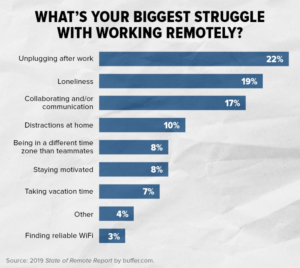| Image Credit: Pixabay
Digitisation is the key force driving major changes across industries right now. In fact, digitisation is key to survival, as revealed by the fifth edition of the “Small and Medium Business Trends’ report. The Salesforce report shows that SMBs embraced digitisation to survive during the pandemic. However, the rapid adoption of digital-first tools comes with changes at work and it is important to see whether the workforce is ready for such a change.
One of the big changes driven by digitisation is the opportunity for the workforce to learn new digital skills. Salesforce has released a new study that studies the extent to which employees around the world feel ready for this digital-first workplace. This study also looks at the digital skills they need to thrive in a fully digital world.
Will AI be able to disrupt the translation market? Find it out.
Globally, the study shows that some already feel that they have the necessary digital skills while there are others who trust themselves to learn these digital skills in a timely manner. In the Netherlands, the Dutch workforce is beaming with positive energy about digital skills. Here is a look at some of the findings from the Netherlands.
Digital skills: Dutch labour force and their positive attitude
The Netherlands has always been at the forefront of embracing modern technologies like machine learning and artificial intelligence. There are a number of startups and SMBs in the Netherlands doing critical work in these fields to bring about a positive impact in the society.
It should not come as a surprise that the Dutch labour force feels positive about their digital skills. The Salesforce study shows the Dutch workforce feels skilled in the digital skills that are currently needed in the business world.
A large majority (87 per cent) of those surveyed for the study feel they are at least somewhat prepared for the digital skills of the future. The confidence is evident when you see a quarter of the labour force say they are ‘very prepared’ for future digital skills. The answers from the Dutch labour force are in stark contrast to people worried about the skills gap globally.
“Digitisation is central to our professional and personal lives. While generations such as Gen Z and millennials have grown up with these developments, others have had to keep up with the change. It is encouraging to see that the Dutch workforce feels positive about these developments,” says Michiel van Vlimmeren, SVP and General Manager at Salesforce Netherlands.
Skills gap is defined as the difference between the skills needed by the companies for growth and innovation and the skills actually possessed by their workforce. For economic recovery and stimulating a resilient economy in the long term, it is important for companies around the world to narrow this gap and it is extremely vital for local businesses to narrow this gap.
Has the Dutch workforce mastered all digital skills?
The Dutch workforce is positively confident about the skills they possess to thrive in the current digital landscape. However, the labour force in the Netherlands is also acutely aware of the fact that they have not mastered all the digital skills.
When looking at the actual digital skills, the Salesforce study shows that many Dutch people don’t feel comfortable with certain digital skills, just yet. The study shows if the Dutch workforce is presented with an option to choose between beginner’, ‘advanced’, or ‘advanced’, most of them will choose ‘beginner’ for these skills:
- Artificial Intelligence (74 per cent)
- Coding (70 per cent)
- Security and encryption (69 per cent)
- Data visualisation (68 per cent)
- Data science (59 per cent)
This mainly because of the fact that the digitisation adopted by most companies does not require their employees to possess all of the above skills. The study further proves an important point about the modern workforce. Even though the skills mentioned above may not be needed for some positions just yet, they might be crucial in the future.
According to the study, more than two in five (43 per cent) see data science becoming an important element of their job. Data science is a comprehensive term for data analysis, statistics and modelling. This also applies to AI where 55 per cent see the broad field becoming central to their work in the future.
“At the same time, we see that technological developments are moving at lightning speed, which also overwhelms people. If we add to this the rapidly increasing demand for people in digital professions, as well as the still high proportion of people who do not actively participate in learning and training programmes, it also appears that there is a great importance in real action,” adds van Vlimmeren.
Active learning of new digital skills
The Dutch workforce is already preparing for this future where they will need the above mentioned digital skills. They are doing this by actively learning new digital skills with 48 per cent learning new digital skills to accelerate their current career. However, the motives for learning new digital skills are different among millennials.
The Salesforce study found that one in five (21 per cent) of millennials would like to learn new skills to take a different career path. These millennials are also clear that they would like to stay with their current employer despite interest in taking a different career path.
Digital Skills Index: what you need to know
The Digital Skills Index is a study by Salesforce that draws findings from over 23,000 employed and prospective employees across 19 countries. The study aims to narrow down their perceived readiness to acquire and retain the digital skills needed to succeed in the workplace, now and in the next five years.
The index has a score of 33 globally while the Netherlands only scores 24. The study shows only 36 per cent feel prepared with workplace digital skills now while that number drops to 26 per cent in five years. For the Dutch workforce, the focus is entirely on some of the most important digital skills like AI, coding and app development, collaboration technology, creative design, data science, et cetera.
In the Netherlands, the top workplace digital skill right now is collaboration technology followed by digital administration. Encryption and cybersecurity, project management technology, and digital marketing round out the top five list.
Among everyday digital skills, almost 37 per cent feel they are at an advanced level of web navigation while 49 per cent feel they are at intermediate level. For social media, 30 per cent consider themselves to be advanced while 44 per cent and 26 per cent feel they are at intermediate and beginner levels, respectively.
In the field of data analytics, only 21 per cent feel they are at an advanced level while 40 per cent consider themselves to be intermediate. With 48 per cent choosing beginner for data analytics, the country needs to focus on upskilling its existing labour force on modern digital skills at the earliest.
When asked about future career plans, 48 per cent say they plan to learn new skills to grow in their current career while 28 percent plan to stay in their current career without adding any new skills. The study also shows that 12 per cent plan to learn new skills that will lead them to a different career path at their current organisation and the same number of people want to do so but outside of their current company or organisation.
How partnering up with Salesforce helped him succeed!









